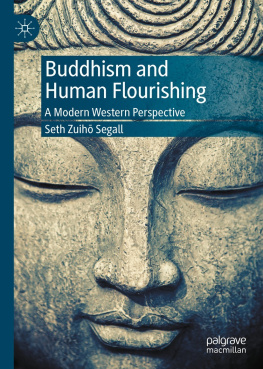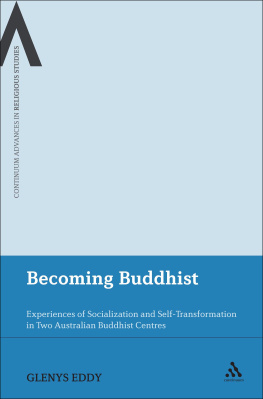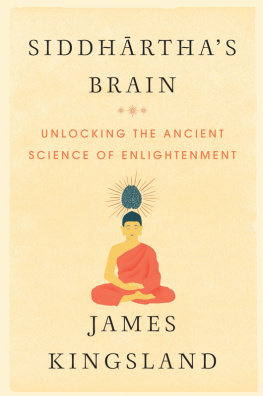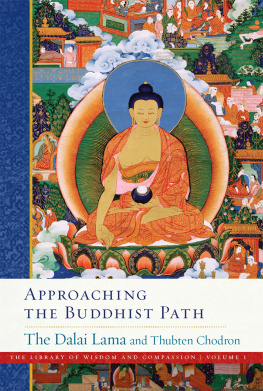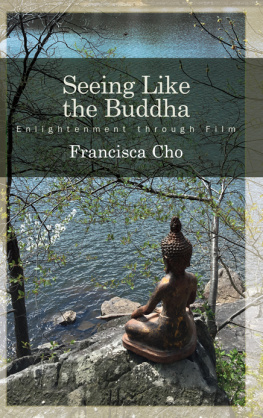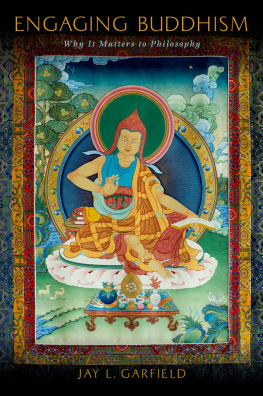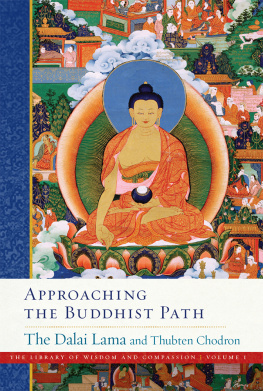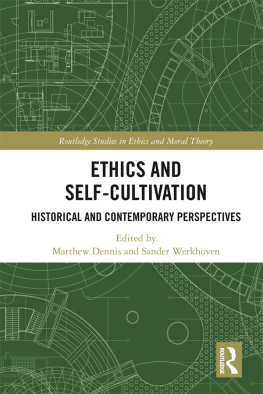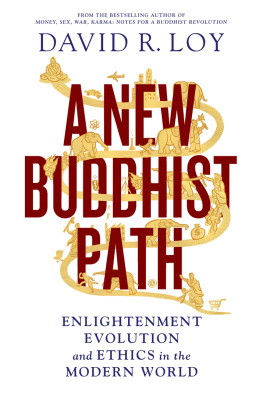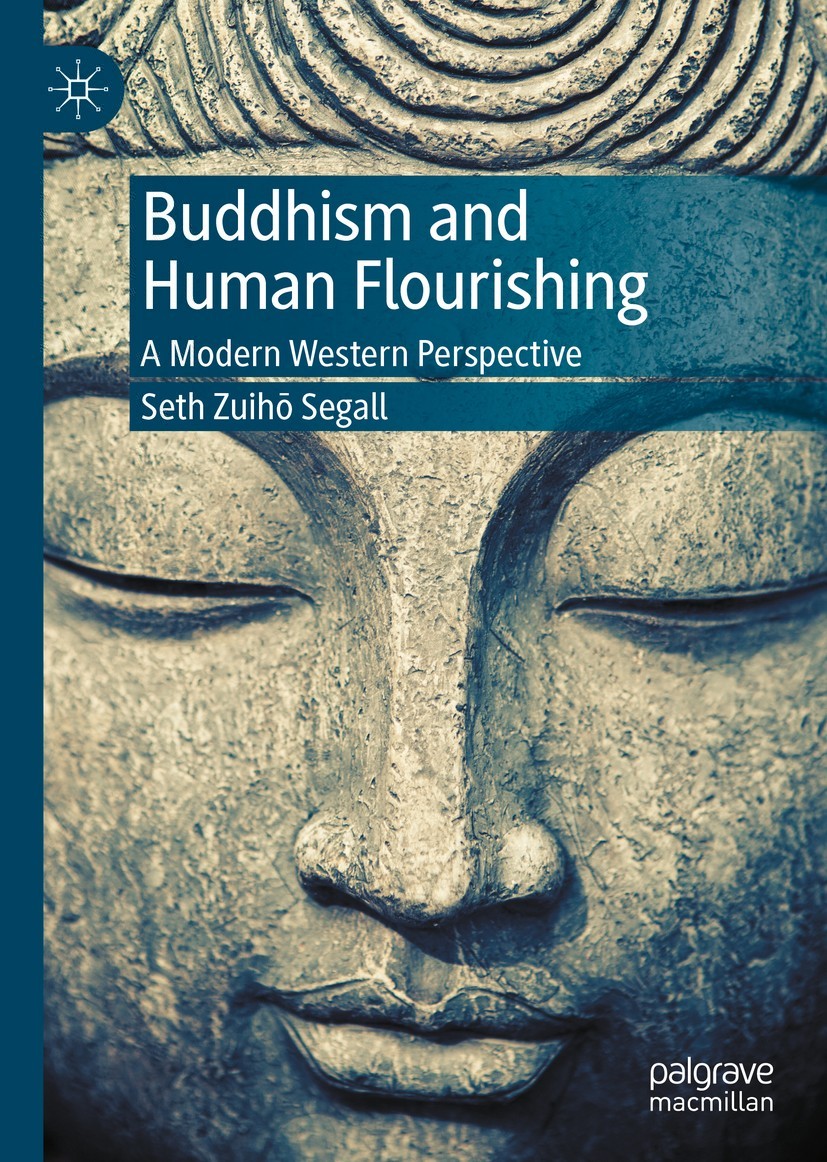Seth Zuih Segall
Buddhism and Human Flourishing
A Modern Western Perspective

The Palgrave Macmillan logo.
Seth Zuih Segall
White Plains, NY, USA
ISBN 978-3-030-37026-8 e-ISBN 978-3-030-37027-5
https://doi.org/10.1007/978-3-030-37027-5
The Editor(s) (if applicable) and The Author(s), under exclusive license to Springer Nature Switzerland AG 2020
This work is subject to copyright. All rights are solely and exclusively licensed by the Publisher, whether the whole or part of the material is concerned, specifically the rights of translation, reprinting, reuse of illustrations, recitation, broadcasting, reproduction on microfilms or in any other physical way, and transmission or information storage and retrieval, electronic adaptation, computer software, or by similar or dissimilar methodology now known or hereafter developed.
The use of general descriptive names, registered names, trademarks, service marks, etc. in this publication does not imply, even in the absence of a specific statement, that such names are exempt from the relevant protective laws and regulations and therefore free for general use.
The publisher, the authors and the editors are safe to assume that the advice and information in this book are believed to be true and accurate at the date of publication. Neither the publisher nor the authors or the editors give a warranty, expressed or implied, with respect to the material contained herein or for any errors or omissions that may have been made. The publisher remains neutral with regard to jurisdictional claims in published maps and institutional affiliations.
This Palgrave Macmillan imprint is published by the registered company Springer Nature Switzerland AG.
The registered company address is: Gewerbestrasse 11, 6330 Cham, Switzerland
Buddhism and Human Flourishingis an admirably thoughtful work of comparative practical philosophy and psychology. It is one of the few books from a modern Buddhist perspective that grapples with the realities of historical and cultural context and with what it means to take up ideas and practices from a very different time and place with nuance and complexity. A rare fusion of erudition and accessibility, it will be of interest to scholars and practitioners alike.
David L. McMahan, Charles A. DanaProfessor of Religious Studies, Franklin & Marshall College, USA
Seth Zuih Segall is one of a kind: a Zen Buddhist priest, a hospital chaplain associate, psychotherapist, existentialist, peace activist, and as fluent in recent philosophical debates about the nature of self and consciousness as in the history and philosophy of Buddhism. In this timely, crystal clear book, Segall defends a version of Buddhist modernism attuned to the sensibilities of secular and scientifically minded people. How can people in the lineage of Plato and Aristotle and the Abrahamic traditions adapt and adopt Buddhist beliefs and sensibilities? In this terrific book, Seth Segall shows a way.
Owen Flanagan, James B. DukeProfessor of Philosophy, Duke University, USA
Challenging traditional understandings of rebirth and karma is a hallmark of all emerging modernist Buddhisms. If theyre right, then one question burns: what is enlightenment? Seth Zuih Segall, Zen priest and psychologist, explores how Aristotles eudaimonia may prove the key to a modernist Buddhist path of awakening. This is a compelling book, challenging but also inviting. Its an important contribution to a growing modernist Buddhist literature. I recommend it to anyone wrestling with the great questions of who are we and how can we live lives of value and meaning.
James Ishmael Ford, Roshi;Author ofIntroduction to Zen Koans: Learning the Language of DragonsandIf Youre Lucky, Your Heart Will Break: Field Notes from a Zen Life
Contemporary Western Buddhism has become a process, not of the extinction of the self and desire, but of their transformation in the service of human flourishing. Seth Zuih Segall, with a creative synthesis of contemporary psychology and Aristotelean virtue ethics, has formulated a new eudaemonic Buddhism that is both relevant to our times, while preserving the essential teachings of traditional Buddhism.
Barry Magid, MD Psychoanalyst and Founding Teacher,Ordinary Mind Zendo
This book is dedicated to the memories of Ruth Denison, Ferris Urbanowski, and Toni Packerthree remarkable women who introduced me to Vipassan, mindfulness, and meditative inquiry. May their memories be an inspiration and a blessing.
Preface
If we modern Westerners are to make Buddhism our own, we must find ways to accommodate traditional Buddhist ideas to the preexisting understandingsboth tacit and explicitthat constitute our modern way of being-in-the-world. To do anything less puts us at risk for an inner dividedness in which we half-believe in any number of contrasting and incompatible ideas. This is not a good place to end up.
The central thesis of this book is that the tensions between traditional Buddhist understandings of enlightenment and prevailing Western notions of human flourishing are significant contributing factors in the evolution of Western Buddhism. I intend to show how this underlying tension strongly affects the way many, if not most, contemporary Western Buddhist teachers and practitioners interpret the Dharma.
There are, by now, many excellent works of scholarship that explain how and why Western Buddhist modernism came to be as it is. The works of Donald Lopez Jr ., David McMahan , Thanissaro Bhikkhu , and Ann Gleig come readily to mind. Their work has traced the general influences of Western science, psychology, economics, literature, and technological innovation and the specific influences of Western individualism, romanticism , transcendentalism , perennialism, humanistic psychology, and social liberation movements on Western Buddhist modernism. Meanwhile, the influence of prevailing Western notions of human flourishing, derived from the Aristotelian tradition, has gone practically unnoticed, hiding in plain sight. This book is an attempt to remedy that relative neglect.
The idea for this book came to me two years ago during a weeklong Zensesshin (silent Buddhist meditation retreat). One isnt supposed to nurture thoughts duringsesshin if thoughts like these occur, one is just supposed to let them go. I was helpless in the face of this particular onslaught, however. The least I could do was to turn it into a book.
Although the idea came sudden, unbidden, and whole, its seeds had been planted long before. In February 2006 I heard Tibetan Buddhist scholar-practitioner B. Alan Wallace suggest that Aristotle and the Buddha shared parallel conceptions of the unity of happiness , wisdom , and morality. Five years later I heard philosopher Damien Keown argue that traditional Buddhist ethics was a form of Aristotelian virtue ethics. In 2011 I read philosopher Owen Flanagans discussion of Buddhist and Aristotelian subtypes of happiness in his bookThe Bodhisattvas Brain. Between 2012 and 2017 I taught an undergraduate psychology course examining well-being in Aristotle , Western psychology, and Buddhism, and sometime early in those years re-read Aristotles

